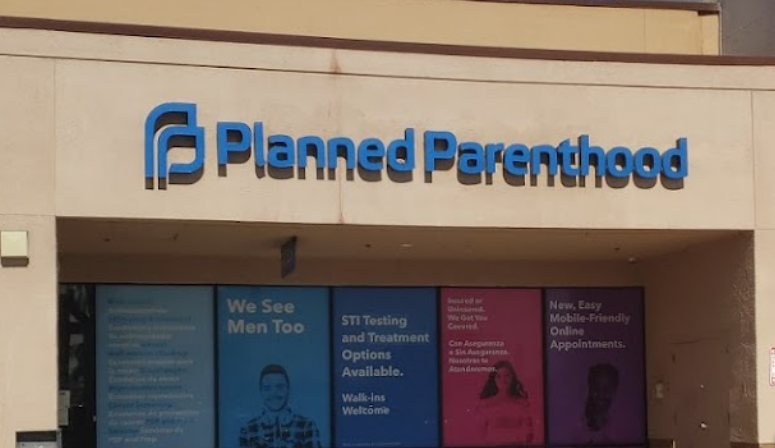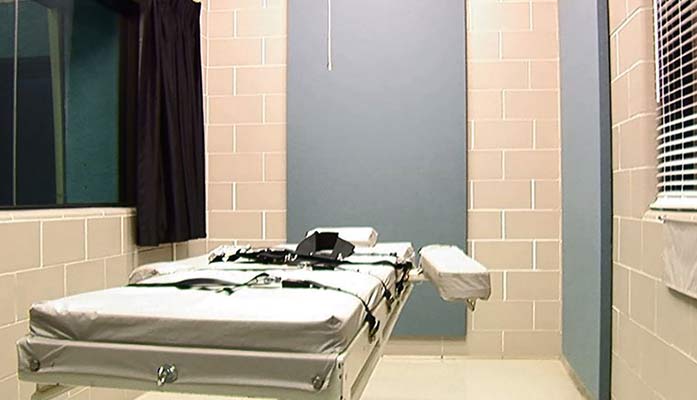
by Corinne Murdock | Mar 9, 2023 | News
By Corinne Murdock |
Planned Parenthood of Arizona (PPAZ) expanded its services last week to include vasectomies after months in limbo awaiting court battles over the state’s existing abortion laws.
The medical director of PPAZ, Jill Gibson, revealed that vasectomy requests increased following the Supreme Court (SCOTUS) ruling last June in Dobbs v. Jackson Women’s Health Organization overturning Roe v. Wade.
“We just started hearing that these patients really wanted to step up at this time,” said Gibson. “They recognized that, with their ongoing protected bodily autonomy, they still had a right to participate in preventing pregnancy in ways that maybe didn’t have the same importance as before the Dobbs decision.”
Planned Parenthood’s Southern Arizona Regional Health Center in Tucson will be the first clinic to offer these expanded services. PPAZ plans to roll out these services to other locations in the near future, with the Phoenix area slated to receive them next.
Gibson told The Arizona Republic that PPAZ hadn’t offered vasectomies for at least a decade. The renewed service costs $750 without insurance; PPAZ won’t offer reversals of these procedures.
PPAZ expanded their services despite the move of Arizona’s major cities to effectively decriminalize abortion. Tucson, Phoenix, and, most recently, Flagstaff all passed resolutions opposing the SCOTUS decision and encouraging their local law enforcement to deprioritize violations of abortion law.
Additionally, both the governor and attorney general support opposition to any restrictions on abortion. Gov. Katie Hobbs said on the campaign trail last October that she wouldn’t put any limits on abortion, even up to birth. Attorney General Kris Mayes has repeatedly promised to not uphold the law and go so far as to prevent county attorneys from enforcing abortion law, even as recently as last week.
State law currently bans abortions after 15 weeks’ gestation. The pre-statehood law banning abortion completely was nullified in the Arizona Court of Appeals in December after it declared the law unenforceable, though the court refused to repeal the law.
While PPAZ has modified its business model to offer more services, other abortion providers have resorted to crowdfunding to stay afloat. Desert Star Family Planning, an independent Phoenix abortion clinic, has requested $80,000 to remain open.
They have raised over $9,200 so far from just over 100 donors since launching the crowdfunding effort in early January.
Brittany Fonteno, the president of Planned Parenthood Advocates of Arizona (PPAZ), said in a January interview that despite the ruling nullifying the pre-statehood abortion ban, lawmakers were infringing on constitutional rights, which she claimed included abortion.
“They don’t want people to know what their rights are, they don’t want people to be able to make their own decisions about their bodies,” said Fonteno.
Corinne Murdock is a reporter for AZ Free News. Follow her latest on Twitter, or email tips to corinne@azfreenews.com.

by Daniel Stefanski | Mar 9, 2023 | Education, News
By Daniel Stefanski |
The Chairman of the House Education Committee is sponsoring a bill designed to increase awareness about school choice in Arizona, but Democrats remain in opposition to any policies that inform parents about their options to educate their children.
Representative Beverly Pingerelli introduced HB 2539, which “creates the Arizona School Choice Division within the State Board of Education, and outlines its duties and appropriates monies and FTEs (full-time employees) to the Division,” according to the overview provided by the Arizona House of Representatives.
Among other provisions of the bill, HB 2539 “directs the Division to implement a public awareness program about students’ abilities to choose any public schools and resources to explain school choice options;” and it “mandates the Division develop single-page informational pamphlets that can be accessed in physical and digital formats to educate parents on the available school choice options for students.” The legislation also “directs the Division to notify ADE if a charter school or school district that operates a D or F letter grade school submits, fails to submit or is late to submit compliance evidence within 60 days of letter grade assignment.”
In an exclusive interview with AZ Free News, Representative Pingerelli explained why she introduced this legislation: “Parents hold schools accountable in Arizona with school choice. But parents need transparency of school outcomes, and they need to be aware of their rights. The purpose of HB2539 is to ensure more parents are aware of ALL their choices. This bill requires that schools not only explain to their parents why and how they are failing to their parents if they have a D or F rating, but how they will improve their school. It relieves schools of the current burden of mailing the entire community a post-card mailer, which currently has almost no information on it. It is our job to ensure parents are informed. Finally, there are hundreds of new Arizonans arriving daily who likely are not experts in our education laws. We currently make no effort to help them. At the cost of an email, we can fix that.”
Last month, the bill passed both the House Education and House Rules Committee. The vote in the Education Committee was split across party lines, 6-4. All eight members of the Rules Committee voted in favor of HB 2539, pushing it one step closer to a vote before the entire House body.
Representatives from the Arizona School Administrators Association, Arizona Education Association, and Save Our Schools Arizona signed in against this bill as it went through the House committee process.
Over the past two sessions, many of the most contentious policy battles between Republicans and Democrats have been over the issue of school choice and providing more control and transparency to parents when it comes to their children’s education. Last year, after numerous debates between passionate members on both sides, the Arizona Legislature passed a historic expansion of the Education Savings Accounts program (ESA), which then-Governor Doug Ducey signed into law. This universal expansion was the first of its kind in the nation and was enacted with partisan votes in both chambers of the Arizona Legislature.
An online account advocating against passage of the bill, tweeted, “The not-too-hidden goal of denigrating public schools is to weaken support for teachers and their unions, and to redirect funds into school vouchers and other programs that pummel public education even further.”
HB 2539 now awaits its up-or-down vote in the full Arizona House of Representatives.
Daniel Stefanski is a reporter for AZ Free News. You can send him news tips using this link.

by Terri Jo Neff | Mar 8, 2023 | News
By Terri Jo Neff |
With his first piece of legislation, U.S. Rep. Juan Ciscomani is seeking to relieve a major issue within the U.S. Department of Veterans Affairs – the unprecedented backlog of cases pending with the Board of Veterans’ Appeals.
“We have a responsibility to look after our veterans, especially those who have sacrificed so much for our country,” said Ciscomani about H.R. 1378 which he is co-sponsoring with Rep. Morgan McGarvey (D-KY3). “No veteran should be forced to wait for vitally important disability payments.”
In February, the VA reported more than 200,000 undecided disability benefits claim cases, with the average appeal taking 440 days for a decision.
H.R. 1378, otherwise known as the Veterans’ Appeals Backlog Improvement Act, is intended to help the VA respond to a well-publicized backlog that worsened with the passage in 2022 of the Promise to Address Comprehensive Toxics (PACT) Act which expanded eligibility for various illnesses and diseases attributable to toxic exposure during military service.
The VA has dealt with a claims backlog for many years, but the new claims and related appeals have overwhelmed the agency. Secretary of Veterans Affairs Denis Richard McDonough responded to the PACT Act by hiring hundreds of employees to process the claims.
Yet the VA continues to have a difficult time retaining personnel, particularly lawyers who are vital to the appeals process.
H.R. 1378 will require Secretary McDonough to establish a nine-year pilot competitive honors program through which the Department of Veterans Affairs will recruit law school students, recent law school graduates, and entry level attorneys for employment with the VA.
And each newly hired individual in the pilot program who agrees to remain in the service of the Department for at least three years will qualify for student loan repayment benefits under federal law, according to H.R. 1378.
The legislation also calls for the new hires to be provided a professional mentor within Veterans Affairs no later than 90 days after entering the program.
Ciscomani and McGarvey serve together on the U.S. House Veterans Affairs Committee and the subcommittee on Disability Assistance and Memorial Affairs. Their legislation is supported by several groups, including the Disabled American Veterans and the Vietnam Veterans of America.
“DAV has long called on Congress and the Department of Veterans Affairs to support significant and meaningful reforms aimed at addressing the growing backlog of VA claims and appeal processing,” said DAV National Service Director Jim Maszalek. “DAV is proud to support this legislation and applauds Reps. Ciscomani and McGarvey for their bipartisan leadership on this important issue.”
H.R. 1378 further seeks to create a pilot internship program to give high-achieving law students an opportunity to gain experience with the Board of Veterans’ Appeals. Those who successfully complete the internship program would be given priority consideration if they choose to apply for the pilot honors program.
“These programs will enlist our brightest legal minds to assist the Board of Veterans’ Appeals with overcoming this unacceptable backlog,” Ciscomani said upon introduction of the legislation. “It will also offer aspiring public servants an invaluable opportunity to serve their country.”
McDonough will be required to provide periodic reports to Congress about the progress and feasibility of the pilot program. The reports must include findings on the advisability of establishing a permanent competitive honors program and other recommendations to improve recruitment and retention of legal staff at the VA.
In a related manner, H.R. 1378 calls on the Secretary to submit a report to the Congressional committees about efforts to improve access to hearings held before the Board of Veterans’ Appeals held by picture and voice transmission.
Such report should include recommendations for the establishment of pilot programs to assess the feasibility and advisability of using other methods that could improve veteran access to Board of Veterans’ Appeals hearings, according to the legislation.
Terri Jo Neff is a reporter for AZ Free News. Follow her latest on Twitter, or send her news tips here.

by Daniel Stefanski | Mar 8, 2023 | News
By Daniel Stefanski |
Democrat Governor Katie Hobbs is delaying justice for the victims of a convicted killer, and the State Senate President is furious with her calculation to ignore a recent execution warrant issued by the Arizona Supreme Court.
Last week, the state’s top court issued an execution warrant for a convicted murderer, Aaron Gunches, who was first sentenced to death in 2008 for the killing of Ted Price in 2002. Following an early-December 2022 request from then-Attorney General Mark Brnovich for a warrant of execution, the Arizona Supreme Court finally set an April 6 execution date – even in the face of tremendous opposition from Arizona’s new governor and attorney general.
After receiving the order from the state’s high court, Hobbs issued a lengthy statement, announcing that she would not be fulfilling the execution date for Gunches and justifying her decision. The governor wrote: “Yesterday, the Arizona Supreme Court issued a warrant of execution for Aaron Brian Gunches, despite the State withdrawing its motion and informing the Court that the State does not seek to carry out an execution at this time….the State and ADCRR (Arizona Department of Corrections Rehabilitation & Reentry) does not intend to proceed with an execution on April 6, 2023.”
Arizona’s Senate President, Warren Petersen, was outraged by the governor’s decree, tweeting, “He should absolutely be executed! Imagine if a Republican governor refused to carry out this order made by the court!”
And he later added, “Criminals over victims. Not a good look for Arizona.”
Governor Hobbs’ decision to halt Gunches’ execution comes after a chaotic change in policy from the Governor’s and Attorney General’s Offices following the transition of power on January 2, 2023. On January 20, Hobbs established a Death Penalty Independent Review Commissioner, tasking this individual to review and provide “transparency into the ADCRR lethal injection drug and gas chamber chemical procurement process, execution protocols, and staffing considerations including training and experience.” Hobbs stated then that “Arizona has a history of mismanaged executions that have resulted in serious questions and concerns about ADCRR’s execution protocols and lack of transparency.”
The governor’s rollout of this executive order included cooperation from newly installed Attorney General Kris Mayes, who announced that day that her office “filed a motion to withdraw the warrant of execution for Aaron Brian Gunches.” She announced that her office would “also pause all requests for warrants of execution while the review process (that Hobbs was implementing) is pending.”
Mayes did acknowledge the family members of the murdered victim who were caught in the middle of the political posturing, tweeting, “My heart goes out to the family of Ted Price. I know this must be an unimaginable situation for them. Families of victims of those on death row deserve sympathy and support from all of us, and I extend mine to Mr. Price’s family today.”
On February 24, Governor Hobbs announced the appointment of retired Judge David Duncan as the Commissioner she previously promised – again repeating her claim about Arizona’s history of “mismanaged executions” despite the past three executions under former Attorney General Brnovich and former Governor Doug Ducey occurring as planned. Also, as with her January 20th statement, the governor expressed confidence in her choice to lead the ADCRR, Ryan Thornell, who was nominated on January 17. Thornell was selected from his role as the Deputy Commissioner of Corrections for the Maine Department of Corrections.
Governor Hobbs gave Thornell another endorsement in her most-recent statement announcing that she would not be going forward with Gunches’ execution, saying, “Director Thornell will continue to build up ADCRR’s staffing and competencies to be able to conduct an execution in compliance with state and federal laws, and will balance that work with the work needed to solve the urgent medical, mental health, and other critical problems the Director has inherited from the prior administration.”
According to Senate sources, though, Thornell’s nomination has not been transmitted to the Arizona Legislature for consent as is constitutionally required. Once the Governor’s Office complies with the Arizona Constitution, Thornell would face a rigorous vetting process by the panel commissioned by President Petersen and chaired by Senator Jake Hoffman. With two – and possibly three – of Hobbs’ original choices to run state agencies already derailed by a lack of vetting from her office, Thornell’s journey – and the stability of the agency he has been tasked to run – faces significant question marks as the governor’s administration hits its third month of operation.
Daniel Stefanski is a reporter for AZ Free News. You can send him news tips using this link.

by Daniel Stefanski | Mar 8, 2023 | News
By Daniel Stefanski |
A bill to increase transparency across public bodies in Arizona is making its way through the Legislature, but all Democrats may not be on board with the proposed policies.
HB 2144, sponsored by Representative Tim Dunn, “specifies changes to public meetings and proceedings regulations,” including “requiring all public bodies to provide sufficient seating to accommodate the anticipated attendance of the deliberations and proceedings of a public body.”
The bill also requires: “the agenda of the public meeting to include notice of the time that the public will have physical access to the meeting place,” and “specifying that any head of public body that fails to include notice of the time that the public will have physical access to the meeting place is liable for a civil penalty outlined in statute.”
Representative Michael Carbone co-sponsored this legislation.
An amendment in the House Government Committee “removed the specific liability for the head of a public body,” and “exempted agendas of meetings through technological devices from providing the time the public will have physical access to the meeting place” – for example, Zoom and similar technological meetings.
On January 25, HB 2144 cleared Representative Dunn’s House Government Committee by a 6-3 vote, with one Democrat voting for the bill (Lydia Hernandez). Chairman Dunn indicated that the inspiration behind this piece of legislation stemmed from some government bodies around the state moving their meetings to smaller venues when controversial issues may have been before them. He noted that there could be an intentional motivation to block constituents from attending these meetings in some of these cases – hence the importance of increasing access and transparency for members of the public wishing to attend and participate in these sessions.
Democrat Representative Jennifer Longdon expressed concerns from her cities and other organizations bound by open meeting law about the definitions of some of the terms (“reasonable” and “knowingly”) outlined in the legislation. She voted no on the bill – as did two of her Democrat colleagues. All five Republicans on the committee voted in favor of the bill.
A representative from the Arizona Association of County School Superintendents was signed in to speak against the bill but did not address the committee. Representatives from the County Supervisors Association of Arizona and the League of Arizona Cities and Towns signed in as neutral for the bill.
Later in February, HB 2144 was unanimously approved by the House Rules Committee, with an 8-0 vote. It now awaits its fate with the entire House of Representatives body.
Daniel Stefanski is a reporter for AZ Free News. You can send him news tips using this link.

by Daniel Stefanski | Mar 7, 2023 | News
By Daniel Stefanski |
The Arizona Legislature finished its work on an important piece of legislation to protect children from a leftist agenda in schools, but the bill faces a near-certain dismissal from Democrat Governor Katie Hobbs.
Last month, both the Arizona House and Senate voted to approve SB 1305, sponsored by Senator J.D. Mesnard, which deals with prohibited instruction in schools. According to the purpose of the legislation provided by the State Senate, SB 1305 “prohibits a public school, school district or state agency that is involved with students or teachers of preschool or kindergarten programs of any of grades 1 through 12 (state agency), or an employee of a public school, school district or state agency, from providing instruction to students or employees that promotes or advocates for specified concepts relating to race and ethnicity.”
Like many bills in the Arizona Legislature this session, SB 1305 attracted partisan votes throughout the committee process and on the floors of both chambers. The vote in the Senate was 16-12 in support, with two members (Senators Gabaldon and Miranda) not voting. The vote in the House was 31-29 in favor.
After voting in favor of the bill in February, Representative Austin Smith wrote, “We shouldn’t teach kids in Arizona to hate their fellow man or America.”
On Monday, SB 1305 was transmitted to the Governor’s Office on the Ninth Floor of the Arizona Executive Tower. The bill sponsor, Senator Mesnard, released the following statement to accompany his bill’s recent clearance from the state legislature: “Teaching about historical movements, ideologies or instances of racial hatred and discrimination, including slavery and Jim Crow, are absolutely legitimate and sensible topics of study in the classroom. However, pushing a destructive and racist ideology has no place in our schools. More and more parents are expressing concern over this issue, and we must ensure we nip this in the bud now before the damage is done on our impressionable youth. My colleagues and I in the Senate are calling on Governor Hobbs to sign this commonsense legislation.”
Mesnard’s bill also “outlines procedures for complaints, enforcement and the imposition of civil penalties up to $5,000.”
Arizona Superintendent of Public Instruction, Tom Horne, provided the following quote to AZ Free News on his support of the bill: “All of my life I have believed that we are all individuals, brothers and sisters under the skin, and that what matters is what we know and can do, and not what race we were born into.”
Representatives from Stand for Children, Arizona School Administrators Association, Arizona Education Association, American Civil Liberties Union of Arizona, Save Our Schools Arizona, Arizona School Boards Association, and the Children’s Action Alliance opposed this legislation during the legislative process.
Last month, Save Our Schools Arizona tweeted, “Today, the #AZLeg passed #SB1305, an anti-public school culture-war bill to ban teaching ‘controversial topics,’ drive further distrust of educators & impose $5,000 fines.”
After the bill was approved by the legislative bodies, Stand for Children Arizona tweeted, “If you support teachers and want AZ students to learn accurate history, SIGN OUR LETTER requesting a veto on this bill, and similar bills moving forward.”
The legislation now awaits its fate from Governor Hobbs, who is expected to veto the bill in the coming days.
Daniel Stefanski is a reporter for AZ Free News. You can send him news tips using this link.






